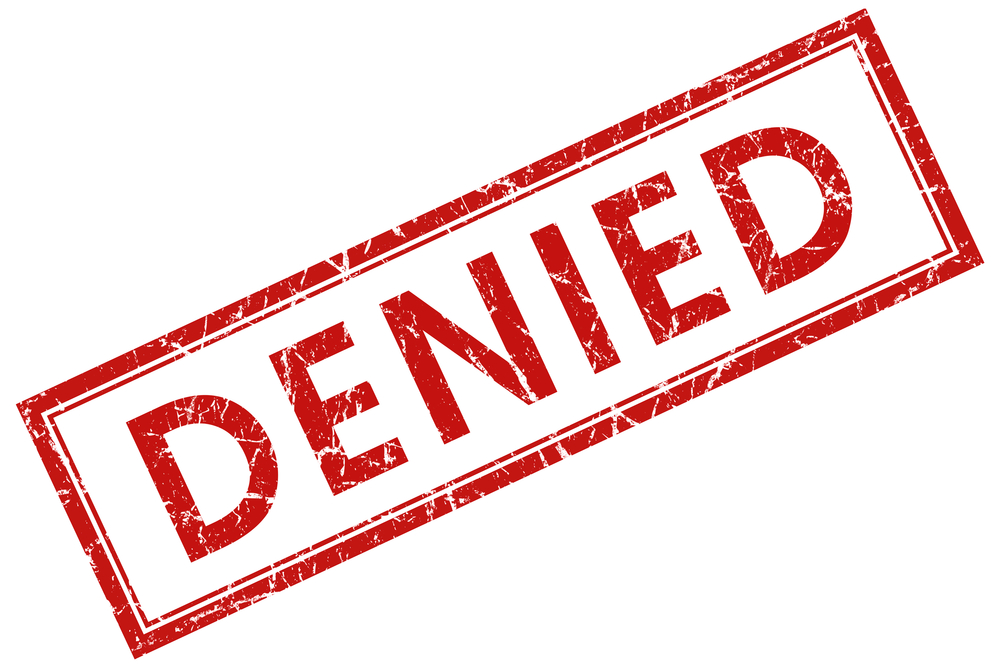
As you may expect, workers’ compensation claims are not always accepted, even when it is a genuine work-related injury. The good news is that even if your workers’ compensation claim is denied for any reason, you still have the right to appeal the denial.
At Kneisler and Schondel, our California workers’ compensation attorney can help you appeal a denial of your workers’ compensation case. Our attorney has many years of experience handling many types of workers’ compensation claims for injured workers. Give us a call today to schedule a consultation to meet with our attorney to discuss your workers’ compensation case.
Why Are Workers’ Compensation Claims Denied?
Your workers’ compensation claim may be denied for any number of reasons. However, you do have a right to challenge that decision.
When a workers’ compensation claim is disputed, or the parties have a medical dispute they are unable to resolve, you may have an evaluation performed by a Qualified Medical Evaluator (QME). A QME is a physician who has met certain licensing and education requirements to be qualified to perform these medical evaluations.
Medical Treatment Denials
You should also know that even if your claim is accepted, it is possible that you could face medical treatment denials down the line. These disputes happen when your employer’s workers’ compensation insurance company believes that the recommended medical treatment is not reasonably necessary.
An example of this might be if you had an accepted back injury, and your doctor recommended treatment to your shoulder or arm—the insurance company may dispute that additional treatment. At that point, the QME would be done to make a determination regarding whether or not the proposed medical treatment is reasonable and related to your work injury.
Beginning Your Appeal of a Worker’s Compensation Denial
There are certain procedures that must be followed in order to effectively appeal a workers’ compensation denial. There are also strict time limits for filing your case, so it is a good idea to speak with an experienced workers’ compensation attorney as soon as you can to learn more about how to protect your right to challenge the denial.
The first step is that you must file your case at the Division of Workers’ Compensation office located nearest to the California county in which you live or in which you were injured. To file your case, you must file a document called an Application for Adjudication of Claim. All involved parties must be served a copy of this document. That generally includes the claims administrator who denied your claim.
Mandatory Settlement Conference
If you are ready to proceed with a hearing on your case before a judge, you must first file a document called a Declaration of Readiness to Proceed. This document initiates the hearing process. Before you can move forward with a final hearing (trial) on your case, your case will first be scheduled for a Mandatory Settlement Conference (MSC).
A mandatory settlement conference gives you and the claims administrator a final opportunity to informally resolve the issues in your workers’ compensation case. At the hearing, the judge will speak with you and the claims administrator in an attempt to help you both to reach a settlement.
If you agree to a settlement, your case will be concluded. If you cannot reach a settlement agreement at the MSC, your case will then be set for trial. At this stage, you, along with your attorney, will need to prepare documents and identify the evidence necessary that support your case. The claims administrator will do the same.
You will also need to identify the names of any witnesses that you plan to have testify on your behalf. The claims administrator is required to take the same steps. The judge will provide you and the other party a date for trial.
Proceeding to Trial Before a Judge
The final stage is to appear in court on the date on which your trial has been scheduled. You will have the opportunity to present the evidence that supports your case, and to have any of your witnesses testify. After the trial has concluded, the judge will issue a written decision and will mail it out to both parties. This is typically done between 30 and 90 days after the trial has occurred. If you do not agree with the judge’s decision, you can appeal it—but the claims administrator can do the same.